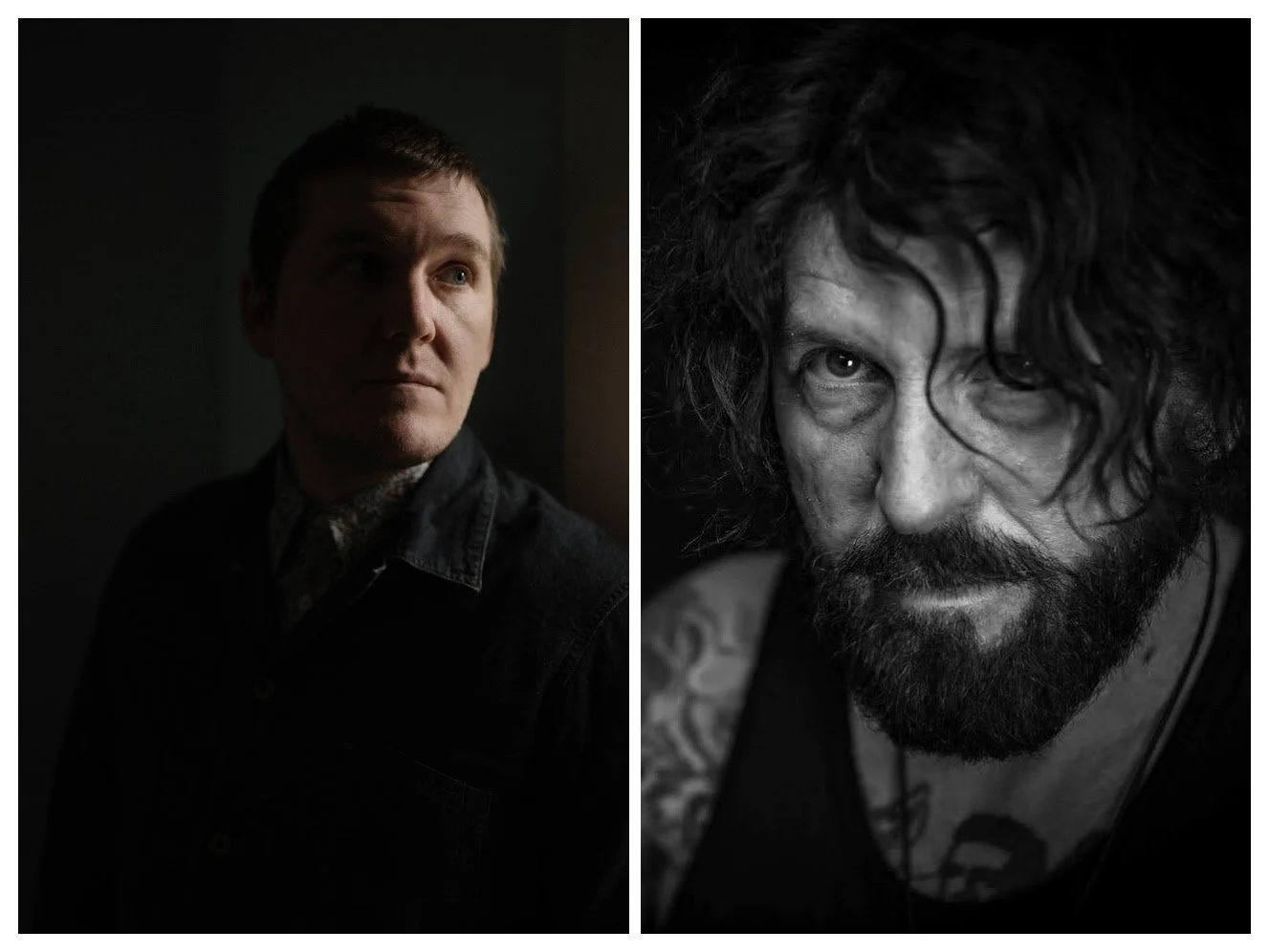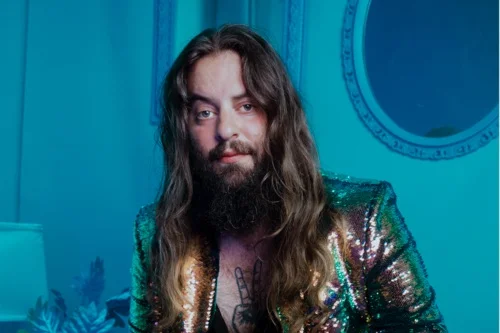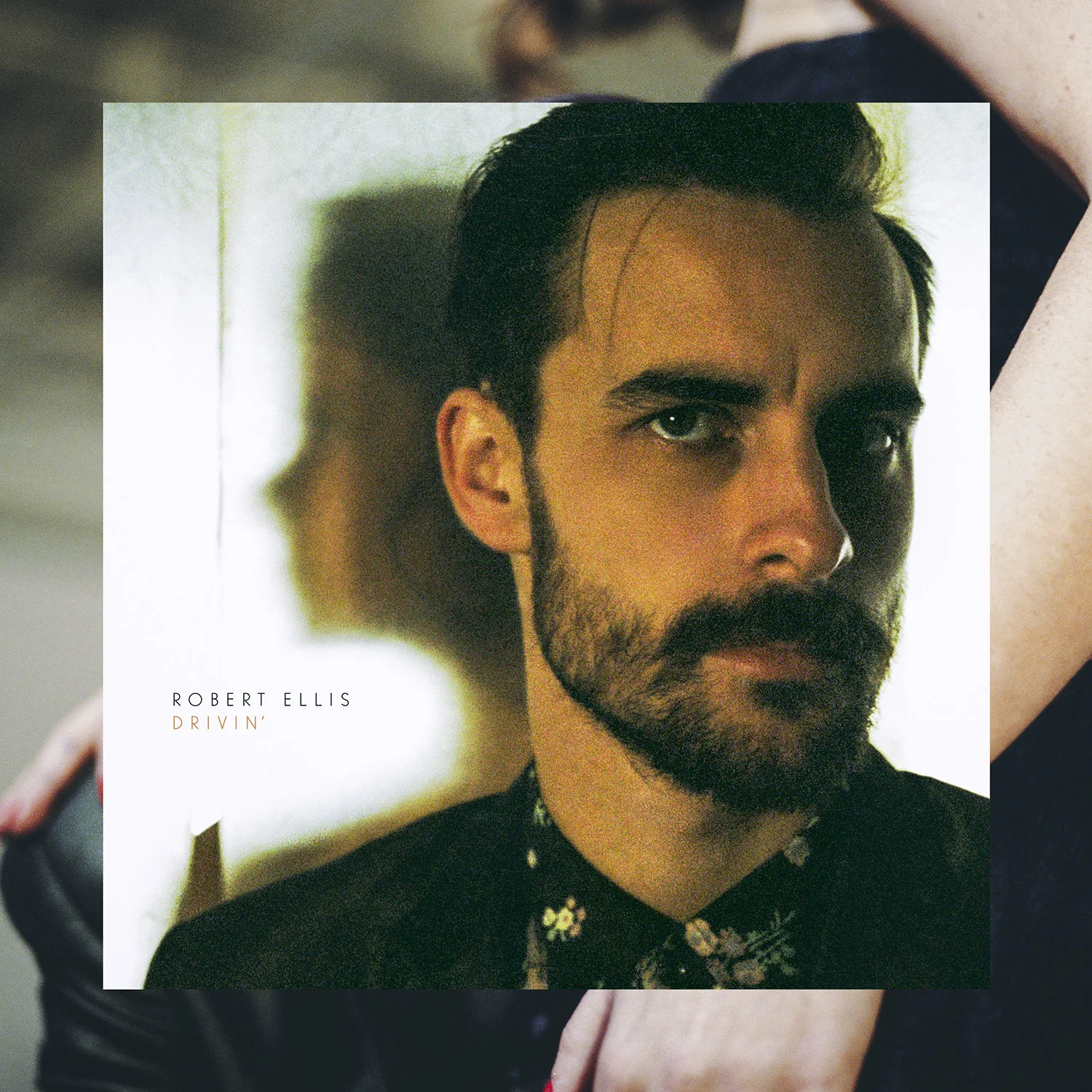Britt Daniel//Spoon
“When I try to write with intention, I come up empty. But if I’m trying not to do anything, I’ve been more successful.”
Spoon’s Britt Daniel often finds his greatest success as a songwriter comes when he’s trying not to write songs.
With Daniel, less organization often means a more efficient songwriting process. “Trying to be organized can be a dead end,” he told me. A linear writing process doesn’t work for him because that’s when he starts to judge. So Daniel is at his most productive when he writes without direction.
When it comes to actually sitting down to write lyrics, Daniel prefers a good, hard floor. That’s where he gets his best writing done. For one, Daniel likes to spread out all those lyrics in front of him, and the floor provides him with plenty of room to take in all those words collectively. But Daniel also theorizes that the floor brings him back to simpler times when he was just starting out: he couldn’t even afford a couch, so it was just him, the floor, and some empty milk crates (which served as tables, chairs, and dressers all in one). Simplifying the process is where Daniel often finds the most success: don’t complicate, just write.
The latest album by Spoon is called Lucifer on the Sofa. Listen to my interview with Britt Daniel below!
The key to The Black Pumas' creative process? Turn signals! Adrian Quesada told me that he’s mesmerized by the rhythm of his car’s turn signals when he’s driving. “I’m always superimposing a 6/4 rhythm on them whenever I’m at an intersection,” he told me. So much so that that his wife has to remind him that the light is green.
Dave Hause and Kathleen Edwards have known each other for a while and are huge fans of each other’s music, so this was a fun conversation on the creative process. We talked a lot about whether large expanses of time make them more productive, how reading affects their songwriting process, and what they do when they get stuck. And how twins and dogs affect their songwriting process.
I'm sure you're thinking, "How in the heck did you get these two guys together?" I've interviewed Fallon twice for Songwriters on Process, and I've been an LA Guns fan since their first s/t album. I first saw them live on the "Cocked and Loaded" tour in the late 80s while in college. I follow both of these guys on social media and noticed that they'd always comment on each other's posts. I figured they knew each other, so I reached out. They were both game to talk.
For Mark Morton (Lamb of God) and Alain Johannes , inspiration for songs often comes from the ordinary, everyday life. The environment is an especially fertile place: Morton says songs come to him while gardening, while for Johannes it can be the sounds he hears throughout the day.
This is the second time I’ve interviewed Morton and Johannes; I interviewed Morton in 2014 and Johannes in 2010. I’ve kept in touch with both since then, so it was easy to get these two guys together to talk about their creative process, especially since there’s mutual admiration between the two. In fact, they collaborated on the recent Mark Lanegan solo album Straight Songs of Sorrow: Johannes produced and played on it, while Morton co-wrote and also played on it.
Jim James of My Morning Jacket wants to be a happy songwriter. And a healthy one too.
A fair amount of the songwriters I’ve interviewed extol the virtues of writing while hungover. Others talk about how marijuana helps their creativity. Still others credit sobriety with making them better thinkers. But few, like James, have openly advocated physical exercise as a means to boost creativity. He wants more songwriters to get out of the studio and into fresh air. He’s also sick of the idea that misery is an essential component to writing.
“Woo hoo! I feel so energized!”
This was Tim Showalter’s first reaction when I told him we were wrapping up our interview, which had gone for over an hour. His next reaction? “Let’s do this again sometime!”
I could feel Showalter, the man behind Strand of Oaks, smiling during most of our phone conversation. He loves to talk about the creative process.
Shooter Jennings is not one for rest. While you’re reading this, he’s somewhere creating something. You may know Jennings for his career as a singer/songwriter, and that career alone should keep him busy. But this does not satisfy the man. He also creates video games just for fun: he’s on his third now and has written tens of thousands of lines of code for these science fiction role playing games.
Towards the end of my conversation with Chris Robinson, we started talking about his reading habits. In my almost 200 interviews for this site, I've learned that songwriters are voracious readers. But I was not at all prepared for the onslaught of titles that Robinson threw at me. He reads so much that I don't know where the man finds time to write. And while most songwriters stick to a genre or two, Robinson sticks to nothing. He wants to be exposed to everything. So he reads some Beat poets, then some Baudelaire. He'll move to Gene Wolfe then Knut Hamsun. Then it might be time for H.P. Lovecraft and Arthur Machen, moving on after that to Israel Regardi's The Golden Dawn or The Dreaming Jewels by Theodore Sturgeon, then some non-fiction in the form or Mary Beard. His current favorite is Brian Calling.
Robinson is the frontman and leader of The Chris Robinson Brotherhood, a band he begin in 2011. They've put out six albums in that time, the latest being 2017's Barefoot in the Head. Of course, from 1989 to 2015, Robinson fronted the Black Crowes. Besides their great music - their debut Shake Your Money Maker has not one bad song - the Black Crowes were an incredible live band. I can attest to that: I first saw them in 1990 at a club in Grand Rapids, Michigan right after Shake Your Money Maker was released. The buzz around the band had just started, and that show still stands as one of the best I've ever seen.
When Brian Fallon writes, he's constantly being watched. There's Paul, Tom, B.B. and George, among others, looking over his shoulder. And yes, that's McCartney, Waits, King, and Harrison. You see, there's a room in Fallon's house where he does most of his writing. (When's up there, he's always dressed as if he's going to work. No slippers or pajamas. But that's another story.) And in that room Fallon, also singer of The Gaslight Anthem, hung pictures of some of his songwriting idols. Fallon purposely put them high, close to the ceiling, so he always feels like he's being watched, even judged. He looks to them for inspiration and affirmation. He'll even carry on the occasional conversation, imagining how they might react to a line he's written.
For a guy who writes so much and who has such impressive chops, one thing stands out among the songwriters I've interviewed for this site. Most, if not all, have all their old lyrics and journals from previous albums stored somewhere. They might be in a closet or a box, but they keep them. Some might never look at these journals again, while others go through them for inspiration. Not Fallon. He has nothing, save for the notes from the Horrible Crowes project and the notes from Handwritten. He joked that the notes from the Gaslight classic The '59 Sound are probably on the I-95 shoulder somewhere. Fallon's reason is simple: "I purge a lot of stuff on records, so whatever that last record was about, whatever was weighing me down, I don't want to ever bring that stuff back. A record is like an exorcism to me." Of course, Fallon doesn't keep a steady journal, though he admits he'd probably benefit from it since it would help him remember things.
If you ever happen upon Robert Ellis in public, and he's intently staring at you in a way that probably makes you deeply uncomfortable while he's also jotting down words in a journal, don't worry. There's a good chance he's writing a song. You see, for the song "Perfect Strangers" off his new album Robert Ellis, Ellis rode the subway in New York City for a month one August. Every day, he'd hop on the train, sit down, and pull out his journal. Then he's stare ("creepily," in his words) at the other passengers, trying to imagine where they were going, what their job was, and what their family was like. Then he'd write down his impressions, and those impressions formed the basis for "Perfect Strangers."
Ironically, though, Ellis is driven much more by melody than by lyrics. He actually hates to see his lyrics alone on a page, telling me that they too often look like the musings of a "high school creative writing student . . . A lyrical alone is not enough to kick me in the gut to make me finish. When I look at lyrics naked on the page, they always seem shitty to me. It's rare that I look at just my lyrics and feel good about them."
Regardless of what kind of art you create, some level of self-awareness is important. If you're a songwriter, you may marvel at the miracle of inspiration and how sometimes songs just fall into your lap. But at some point, you have to think about your process: you have to think about the parts that work, the parts that don't work, and why they do and don't. Successful songwriters have that level of self-awareness. It's hard to be productive if you're oblivious to your process. Jenn Wasner knows what works and what doesn't work, and this is one of the reasons why she is so prolific and so talented
Carl Broemel is a changed man.
In 2010, when I first interviewed Broemel, the guitarist for My Morning Jacket admitted that his "crazy lifestyle" unfortunately didn't leave him much time for reading. Sure, he had plans: he'd gaze longingly at that stack of books on his bedside table, wondering when he'd ever get to read them. But the stack mostly remained untouched.
It's a different story now, pun intended. Broemel devours books. He reads everything, and I mean everything. I always ask songwriters what they're reading, and I get some great responses. But Broemel and I could've talked forever about what he's been reading, and the enthusiasm in his voice was clear.
"I can’t imagine being a songwriter and not reading. How is that possible?"
No truer words of wisdom have ever been uttered by a songwriter. It should come as no surprise that Neil Fallon, utterer of those words and the the singer/songwriter of the metal band Clutch, is a voracious reader. Fallon is a huge fan of Cormac McCarthy (a favorite among many songwriters I've interviewed) and William Faulkner, but he’s also devoured his share of science fiction over the years—which is why he wanted to branch out to other genres. So Fallon recently decided to tackle some light reading in the form of Russian literature.
"I was just telling my girlfriend the other day, 'People don't take the words of Yoda seriously enough." And with that, J.D. Cronise of The Sword just gave me one of my favorite lines in the six years I've had this site. Most songwriters I talk to usually can pinpoint an ideal emotion or state of mind under which they get their best writing done. To Cronise, though, it's an absence of emotion. He tries to get, in his words, into the most Zen state possible: a mind free of clutter, thoughts, distractions, anything. "It’s the non-emotional space that’s best for me. I like to be in a very Zen headspace. Peace and calm is the most important thing to me when I write." Cronise never forces the writing process, only writing when he feels ready. In itself, this puts him in a relaxed state: there's no pressure to write, so he never gets blocked.















The experiences of Tim Showalter (Strand of Oaks) and Jessica Dobson (Deep Sea Diver) during the pandemic couldn’t be more different. Showalter’s tour cycle for his last album Eraserland ended in February; this meant the quarantine had little impact on his songwriting cycle since he already planned on spending 2020 writing. Dobson fared differently: Deep Sea Diver released Impossible Weight in October, so of course they were unable to tour behind the album, which threw all their plans out the window.